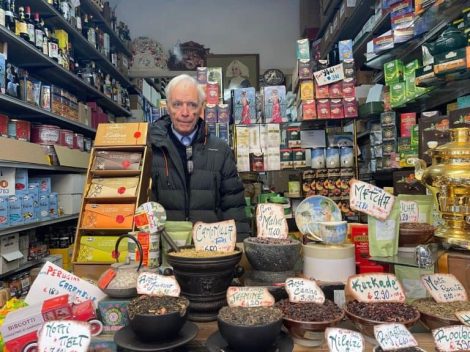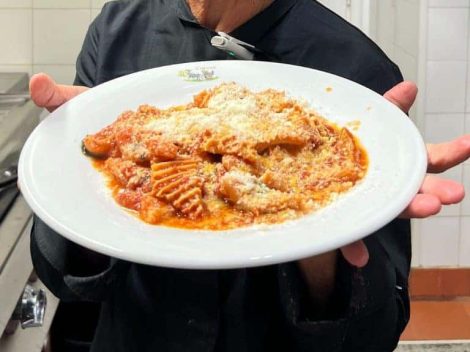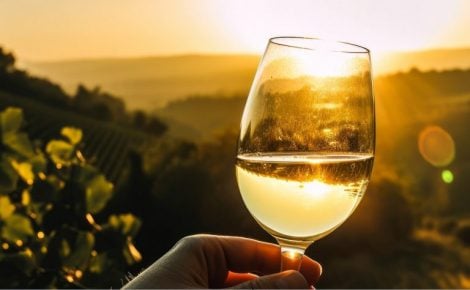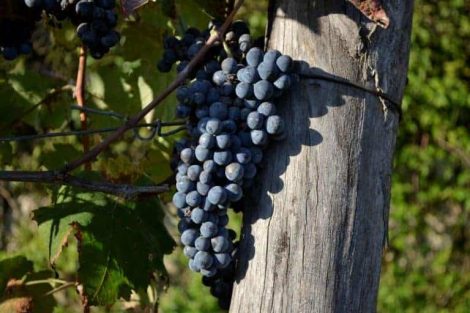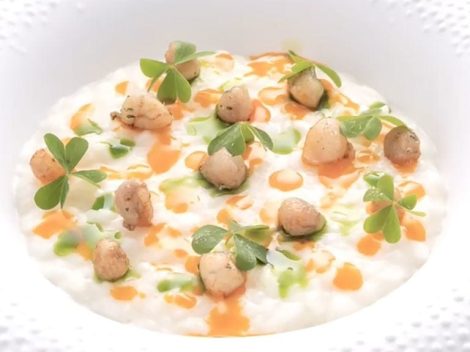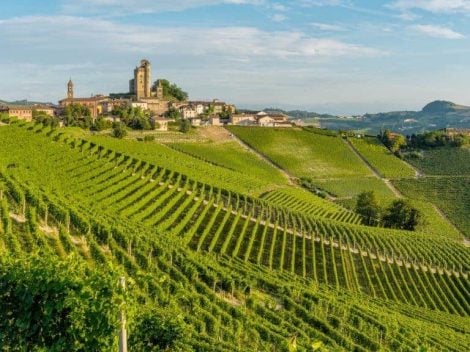The event starts at 6:30 pm, with the meeting point in the fairy-tale hamlet of Capodacqua, home to 200 inhabitants and a handful of houses nestled in the woods, just a few kilometres from Foligno. It's one of those places where even GPS gets confused and lost. The dinner is organised by Giulio Gigli and his partner, Lucille Kopcynski, who have restored an old 17th-century mill here, transforming it into one of the most exciting restaurants in the region: Une (Due Forchette Gambero Rosso, one Michelin star).
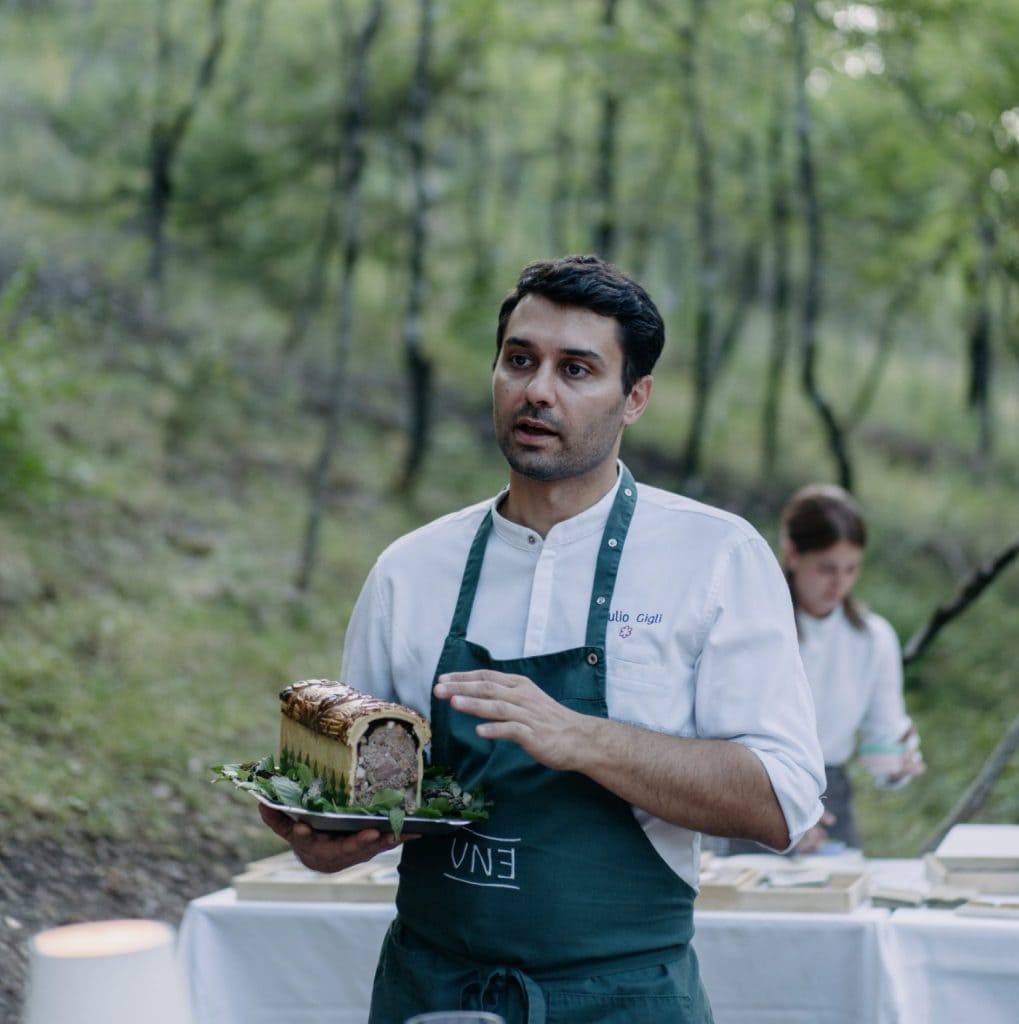
The menu isn’t the restaurant’s classic offering, and neither are the cooking methods. "Expect a wild cuisine, featuring game—always hunted in the surrounding woods—and the flavours of the land: mushrooms, truffles, herbs, preserves, and essences. We focus on ancestral cooking methods: two grills, high flames, sauces and stocks always prepared on the coals, and a pit underground, with charcoal, for slow-cooking meat in clay," Giulio explains. The evening kicks off with a glass of Franciacorta, and the adventure begins.
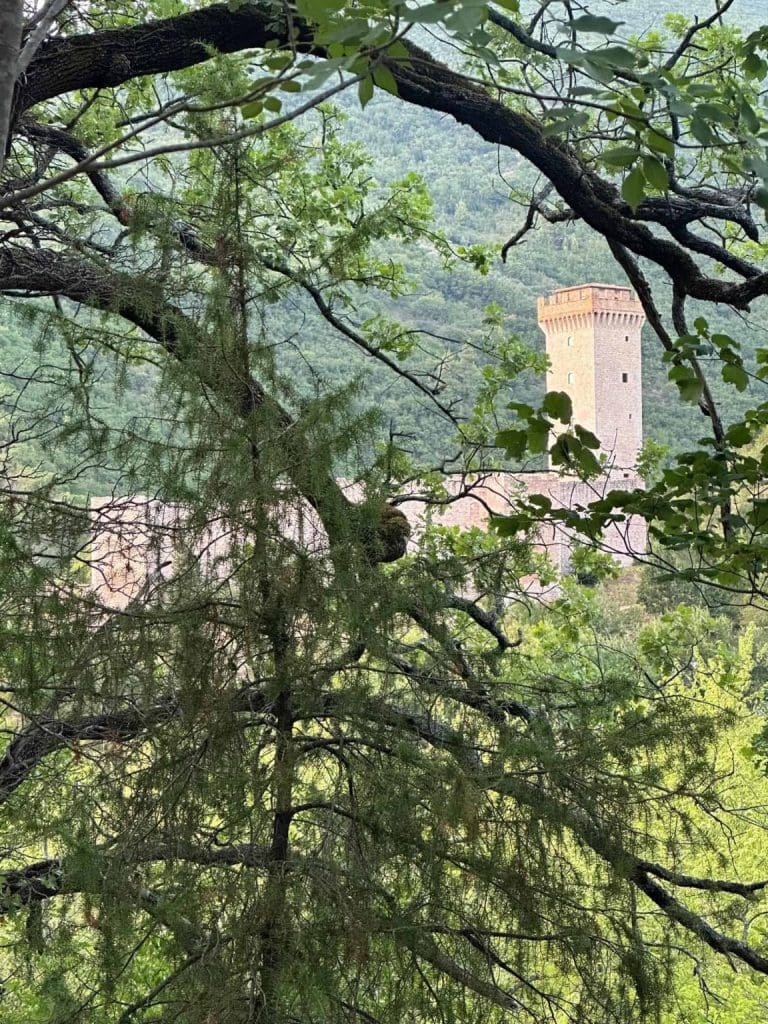
The final destination is a 10-minute walk away, in a portion of the forest historically associated with the property. In Umbria, it’s still like this. There is a single communal table with 12 seats, and everything is left in its natural state. The light filtering through the trees changes the scene within minutes, and the silence is broken only by the sounds of the forest. The landmark is the castle, Rocca dei Trinci, recently purchased by a Brazilian millionaire. At its summit, we hear tales of rose gardens and pools straight out of a fairy tale, completely surrounded by endless woods. The evening begins with a round of homemade preserves and then grilled delicacies, starting with addictive artichokes in wild garlic oil, agretti in salted cod sauce, and chanterelles with snails. Next comes the pâté en croûte, made from venison, porcini mushrooms, and vegetable kimchi. Long cooking and marination result in a flavour that is rich and bold, with a medieval essence—first sweet, then savoury. Complex and technically perfect.
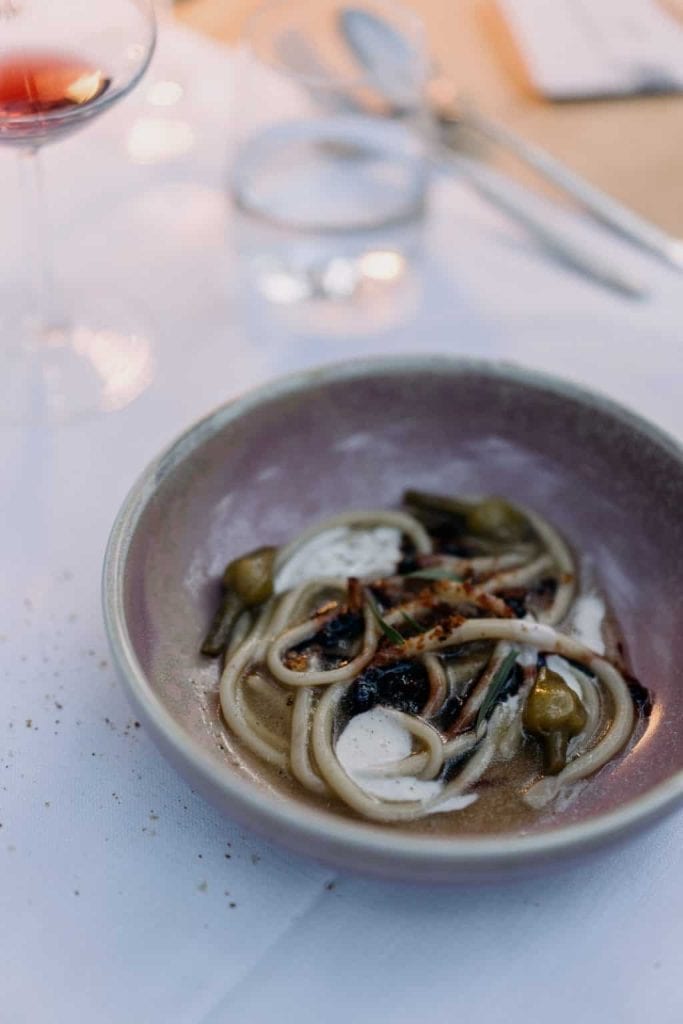
Surrounded by centuries-old oaks and the classic Umbrian thicket, the evening's highlight is the pici pasta cooked on the grill, an homage to Asia. The entire garlic plant is celebrated: garlic, a crunchy breadcrumb made from its stem, and preserved garlic flowers. The flavour is sweet and sour, with a slightly bitter edge, served just warm, with a subtle smoky note. The atmosphere at the table heats up, with some guests enthusiastically planning gastronomic trips up to 2032, while others retreat into silence, seeking the scent of the forest, which is not just in the dishes. The next course is grilled flank steak, infused with oak essence, cornelian cherries, chanterelles, and truffles. The cut is quite thick, requiring a firm bite, but the cooking is spot-on and juicy. The second standout dish is irresistible: grilled tigella with veal cheek cooked for nearly 12 hours in underground clay, served with hollandaise sauce made from grilled marrow and summer truffle. Silence falls over everyone. The meal ends with baumkuchen, literally "tree cake," also slow-cooked over the coals. Its layers resemble the concentric rings of a tree. It’s served with fragrant acacia flower ice cream.
The initial sense of disorientation turns into joy. By 9:30 pm, night has fully fallen, and we return to the restaurant in single file, guided by torches. The group gathers around another communal table: petit fours, coffee, and some finish with a homemade digestif. An experience like this isn’t easily forgotten. The price of the evening? €165, including wine (four wines plus a homemade cocktail). Perhaps the wine pairings could be a bit more daring. The next dinner? It might just be held in that castle we gazed at all evening, with its five rooms in the tower and the aura of mystery surrounding it.

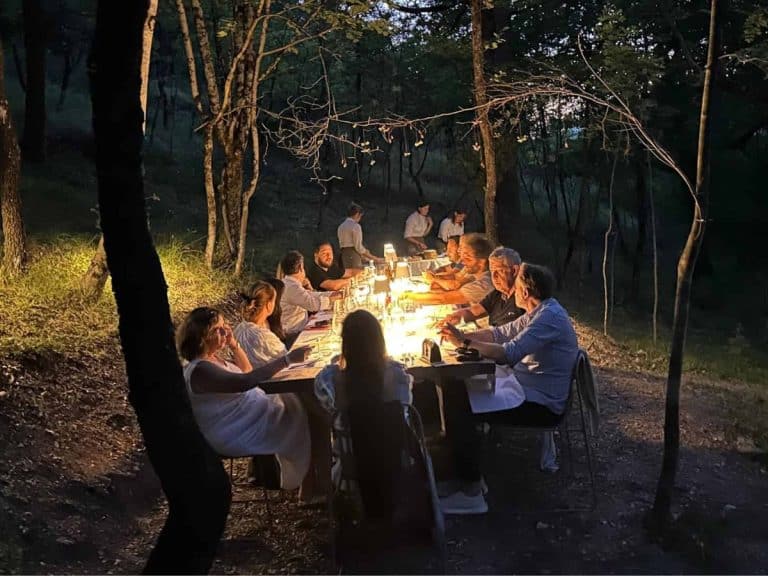
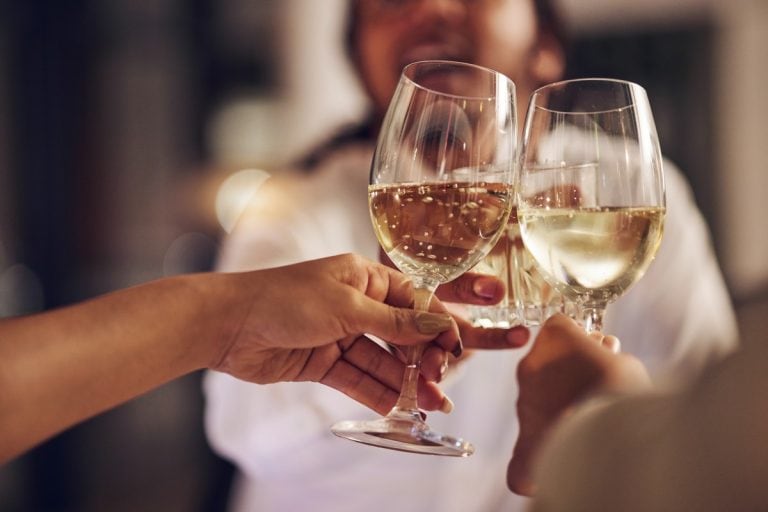 Sparkling wines surpass still wines in Italian out-of-home consumption. Most popular during the aperitif
Sparkling wines surpass still wines in Italian out-of-home consumption. Most popular during the aperitif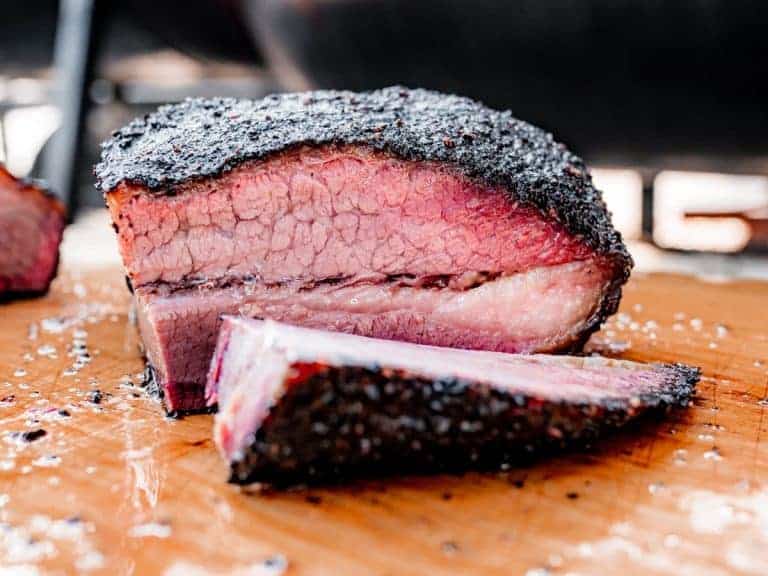 American Barbecue wins a Michelin star for the first time in history
American Barbecue wins a Michelin star for the first time in history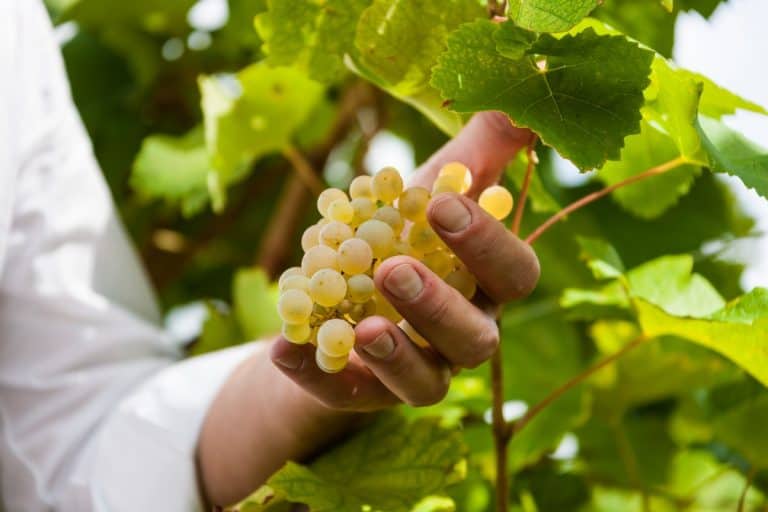 Prosecco Superiore: the 8 best selected by Gambero Rosso
Prosecco Superiore: the 8 best selected by Gambero Rosso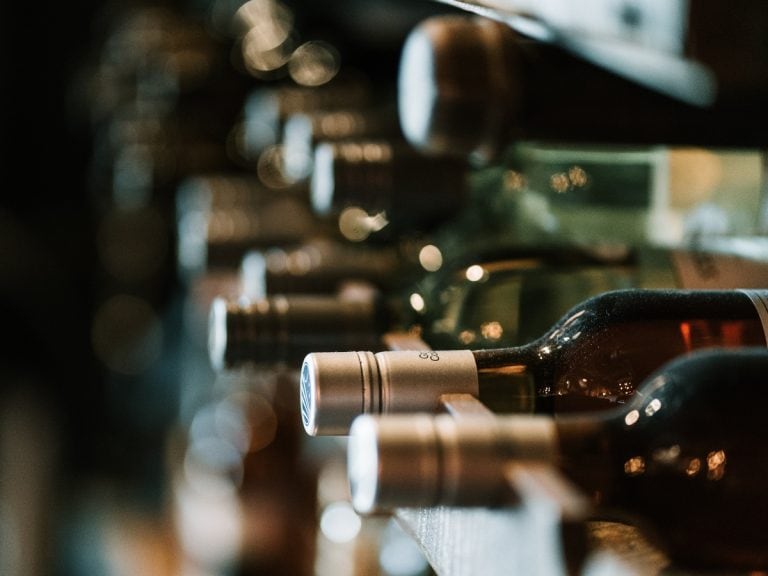 Italian wineries face rising debts and falling revenues as wine industry grapples with economic uncertainty
Italian wineries face rising debts and falling revenues as wine industry grapples with economic uncertainty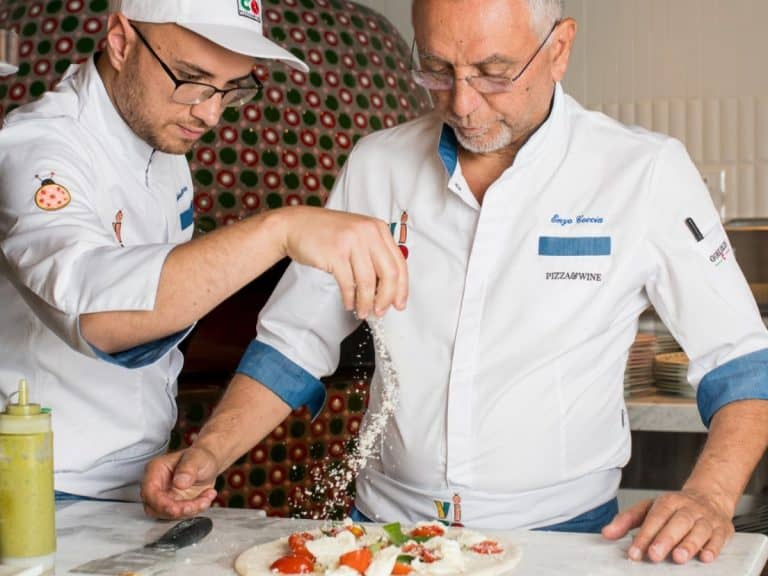 Enzo Coccia leaves Rome for an ambitious project in the United States: "but La Notizia stays"
Enzo Coccia leaves Rome for an ambitious project in the United States: "but La Notizia stays"